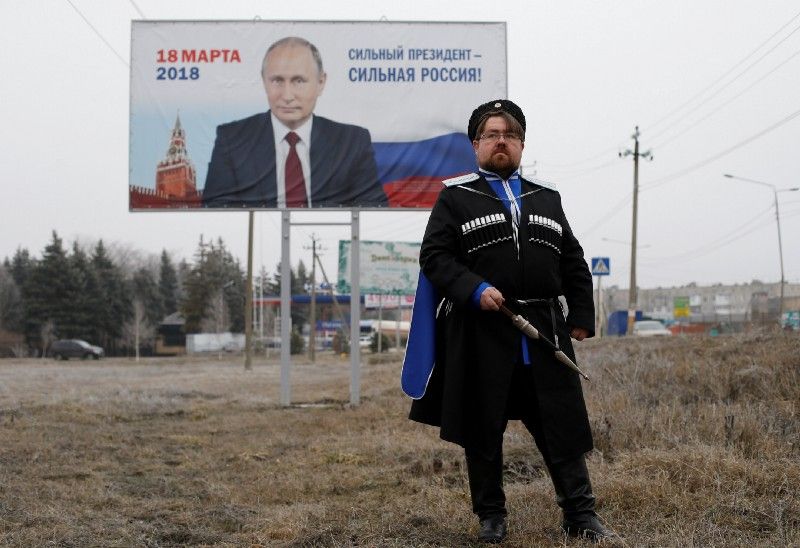March 13, 2018
This Sunday Vladimir Putin will win his fourth term as Russian president. Shocking, I know. One of the only uncertainties ahead of the vote is whether the Kremlin will hit its target of a 70 percent result for Putin with 70 percent turnout. But why does Putin care about these numbers? Isn’t he going to win no matter what? Won’t he remain the near-Tsar of today’s Russia no matter how many people vote for him, or don’t? Yes and yes. But…
Elections in Russia are not an exercise in democratic accountability but a test of legitimacy — a regular assessment of how good the Kremlin is at shaping a particular narrative about Putin, and the ability of the “system” to reflect it. The Kremlin will be keen to see if local political and economic bosses are able to get out the vote without ham-fistedly messing with the tallies in a way that invites protests.This kind of test matters because in fact Russia’s political system is a lot messier than you’d think. Personal relationships and opaque power networks are often more important than formal procedures, parties, and laws. At the center of it all is a kind of spell — if everyone believes that the system is holding together, then so it is. In a somewhat paradoxical way, the basic tool of democracy — elections — are the best way to gauge the effectiveness of that rather undemocratic spell.
What happens if the Kremlin falls dramatically short of the 70/70? Nothing immediately. After all, Putin will still comfortably win the election. But it would sow an unwelcome seed of doubt about Putin’s ability to continually master the theater of Russia’s politics. Is the old man slipping? If so, do power elites who are oriented towards him start, privately, to consider an alternative? All of this matters even more now given that the moment Putin wins, speculation will begin about what he plans to do when his next term expires in 2024, and the constitution bars him from running again. We’ll tackle that question in more detail next Tuesday.
More For You
America’s new National Security Strategy confirms what Europeans have feared for months: Washington now sees a strong, unified European Union as a problem to be solved, not an ally to be supported.
Most Popular
Sponsored posts
The power of sports
What's Good Wednesdays
What’s Good Wednesdays™, December 10, 2025
Walmart sponsored posts
Walmart's $350 billion commitment to American jobs
In this episode of Tools and Weapons, Microsoft Vice Chair and President Brad Smith sits down with Ed Policy, President and CEO of the Green Bay Packers, to discuss how purpose-driven leadership and innovation are shaping the future of one of the world’s most iconic sports franchises. Ed shares how technology and community-focused initiatives, from Titletown Tech to health and safety innovations on the field, are transforming not just the game of football, but the economy and culture of Green Bay itself. He explains how combining strategic vision with investment in local startups is keeping talent in the Midwest and creating opportunities that extend far beyond Lambeau Field.
Subscribe and find new episodes monthly, wherever you listen to podcasts.
Members of security forces stand guard outside a polliong station, a week late in a special election, after the local governing party kept voting closed on election day, amid accusations of sabotage and fraud, in a presidential race still too close to call as counting continues, in San Antonio de Flores, Honduras, December 7, 2025.
REUTERS/Leonel Estrada
More than a week after Hondurans cast their ballots in a presidential election, the country is still stuck in a potentially-dangerous post-election fog.
© 2025 GZERO Media. All Rights Reserved | A Eurasia Group media company.
